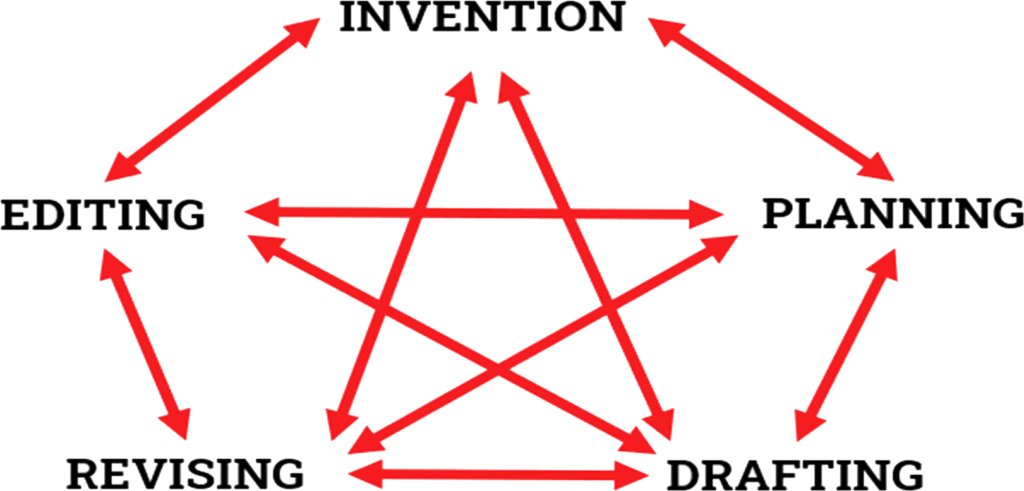chapter 9: introduction

While we won’t go into the detail here about why these steps are not necessarily discrete and why this process is rarely linear, we will point out that there is only one place for the effective use of grammar and punctuation in this model: the editing stage. All the other stages are more concerned with higher-order thinking and getting words on the page. All the other stages are, for the most part, internal. The editing stage, however, is the last stage before publication or submission, the last stage before the document is formally shared with an audience.
While we might use grammar to a lesser extent at the other stages (as normal language use for writing), the developing of text does not need to be grammatically correct until we submit it to readers for their review and evaluation.
We don’t use grammar to come up with ideas for writing (as in invention), nor do we use grammar to plan and organize our document (as in planning). Grammar plays a minor role when we draft because our text needs to be understandable even to ourselves, but we don’t need grammatically correct sentences to write a first draft. Similarly, the revision stage should focus on higher-order concerns, such as thesis or focus, audience, purpose, organization, and development. While grammar can play a stylistic role as we re-see our text, even this is late-stage revision and serves primarily to add complexity to our delivery and to the development of our ideas.
In other words, learning grammar can help you understand the depth of language and its inherent complexity, and learning grammar will help you punctuate your sentences more effectively, but good punctuation does not mean good writing, or that your writing is clear or well-constructed.
As social practice, writing is the complex interactions of writer, reader, text, and context. Once again, grammar has a place in each of these interactions, but grammar should by no means be the primary consideration in your thinking. As a writer, you may have a heightened awareness of language use and correctness if you are writing for a particular reader who might be hyperconscious of grammar, like an English teacher or a hyper-correcter. You might be more conscious of grammar and punctuation if the text needs to be especially clear, like a set of life-saving instructions or a contract. Grammar may have a more prominent place in a particular context, like your job application materials or a formal essay in a literature class. The point is that grammar should play a role in your thinking, but grammar is only one consideration among many for a writer, and while it may be an important consideration, it should never be the primary consideration.

